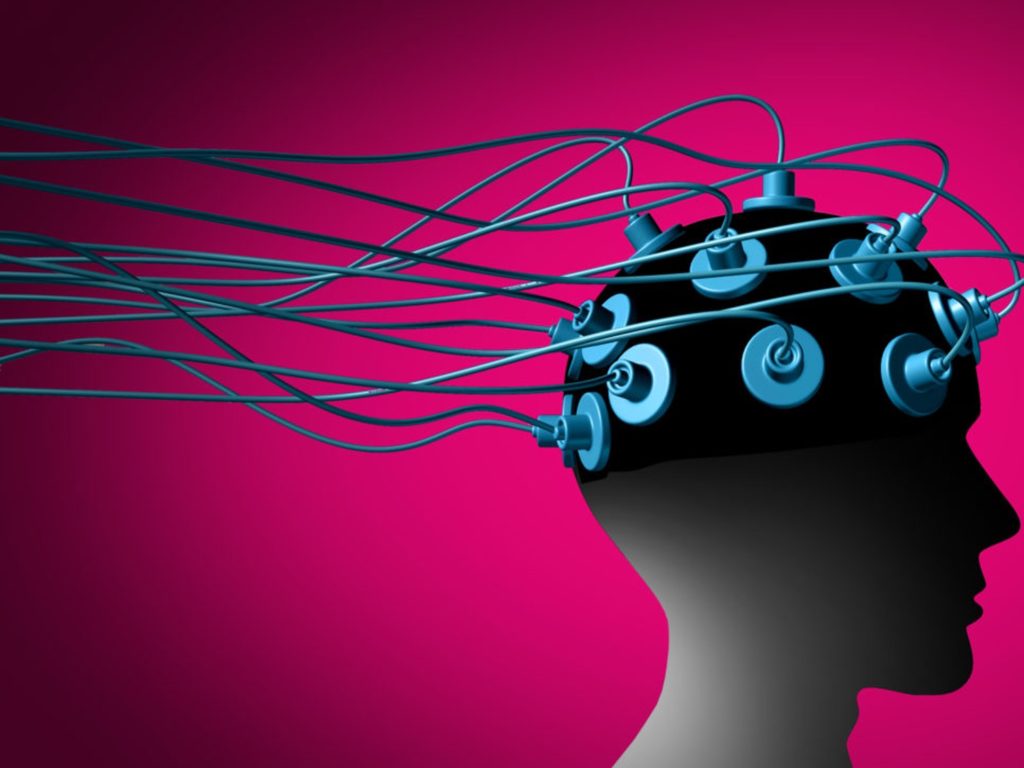How does the moon affect the earth? The latest scientific research shows how the moon affects you whether you know it or not. When you take steps to align yourself with the moon, you help yourself stay calm and rejuvenated. When you don’t, life can feel like a roller-coaster. This is part 3 of a 5-part series:
Part 1 – Ancient Beliefs About the Moon
Part 2 – Discoveries About the Moon
Part 3 – How Does the Moon Affect the Earth?
Part 4 – Subtle Energy Fields
Part 5 – Healing With the Moon
What are magnetic fields?
If you look overhead at certain times of the year you see flocks of birds flying north or south. For millennia, people have seen birds, fish, animals, and insects migrate in cyclical patterns, on schedule, following very specific routes. It’s as if they were navigating by some hidden yet perceptible roadmap, but what those roadmaps were no one knew.
It took modern science to prove the existence of the earth’s magnetic field, and to show its connection to migratory behavior. We can’t see magnetic fields and it takes highly refined technology just to measure them. But we now know that wherever a physical field is created from a moving electric charge that creates force on another moving electric charge, a magnetic field exists.
Measurements have proven that the earth’s magnetic field extends from deep in the earth’s molten iron outer core into space, connecting with, and being affected by, the multitudes of magnetic fields in the universe. Research has linked magnetic field fluctuation to solar activity.
The energy from solar flares, or coronal mass ejections, shoots out from the sun, travels through space, and hits the earth’s magnetic field.
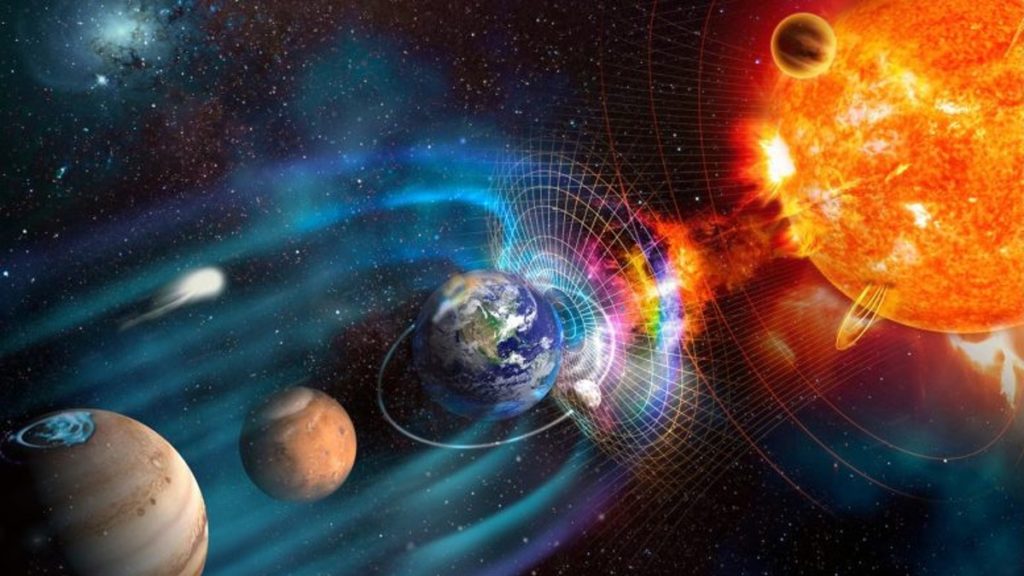
This creates invisible electric currents strong enough to knock out power grids.
There are studies showing links between solar activity and heart attack, stroke, epileptic seizure, schizophrenia, and suicide. Researchers have suggested solar flares may also affect electrically sensitive cells in the heart and brain.
Magnetic fields also extend deep inside of you.
Your nervous system, heart and brain generate electrical impulses which produce weak currents which are measurable by EEG and MEG machines.
Plus, every day you’re surrounded by magnetic fields just inches away from you. Anywhere there’s electricity, there’s a magnetic field bumping up against your magnetic field. Hairdryers, blenders, wires inside walls, elevators, cars, buses, trains, planes … basically everything surrounding you, including people. Every form of life generates magnetic fields which interact with the magnetic fields around them. This means that there are scientifically measurable energy fields inside and all around us. They exist. They are real.
So we generate our own magnetic fields, which are connected to the magnetic fields of the people, animals, and technology surrounding us, which are all connected to the earth’s magnetic field, which fluctuates by coming in contact with the multitudes of magnetic fields in the universe. Since this blog series asks the question “Why Talk About the Moon?” it’s natural to wonder if the moon affects the earth’s magnetic field in any way. Does our closest cosmic neighbor do more than just shine at night?
Does the moon affect the earth’s magnetic field?
It turns out that the moon does, in fact, affect the earth’s magnetic field, on a measurable scale. Geophysicists have discovered that changes in the moon’s cycle, specifically when the moon is full, are linked to magnetic field fluctuations on earth. Measurements show that the greatest fluctuations occur as the moon crosses into and out of the magnetotail plasma, which occurs 2-3 days before the full moon and 3-4 days after the full moon.
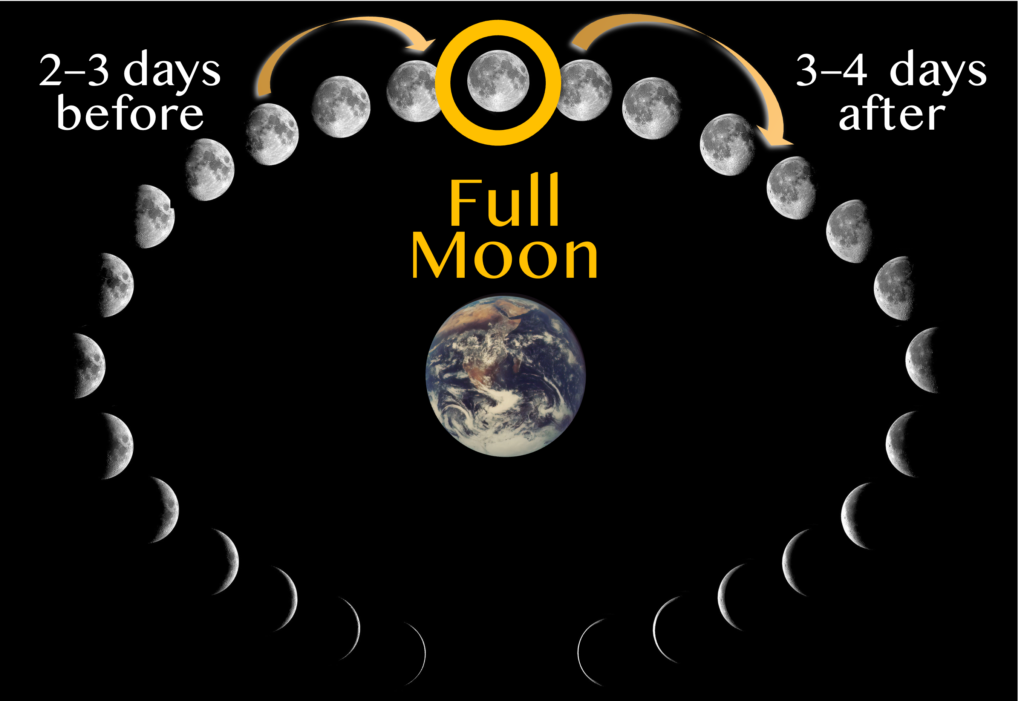
As noted in the research abstract Lunar biological effects and the magnetosphere, the moon’s lunar rhythm produces effects on things as diverse as tree diameter variations, reproduction, changes in stress hormone, bipolar mood cycling, and foraging by mice. The same abstract notes during full moon periods there are 1.5 times more epileptic seizures, 70% more unexpected epileptic deaths, double the number of patients with violent and acute behavioral disturbances, and many anecdotal reports from doctors and hospitals reporting increased numbers of patients coming in during the full moon.
Knowing that full moons have cause the earth’s magnetic field to fluctuate raises some questions: How are people’s physical, mental, and emotional well-being affected by fluctuations in the earth’s magnetic field caused by full moons? Are people unconsciously responding to these disruptions? Can people actually sense magnetic fields?
Indigenous peoples and hypotheses
Science has proven that magnetic fields exist throughout the universe, that plants and animals on earth generate magnetic fields, and that plants and animals can feel and respond to magnetic field fluctuations caused by the sun and moon. And yet, for some reason, the scientific community disavowed the possibility that humans might have magnetic sensory systems. When the question was raised as to whether or not humans, like all other forms of life on earth, could sense magnetic fields, the answer for centuries was a resounding no!
Then Dr. Joseph Kirschvink, a geologist and geophysicist at Caltech, decided to look into the matter.
He knew about the Indigenous peoples of Australia who can orient in the desert and whose language refers to cardinal directions (north, south, east, west) rather than relative ones (right, left, forward, backward). In much the same way as migrating animals in the natural world, these humans seem to use internal compasses that are in touch with the hidden yet perceptible roadmap that is the earth’s magnetic field.
Kirschvink wondered if anecdotal evidence from Australia showed that humans can sense and use magnetic fields? Or, he wondered, have humans lost our magnetic sense and are destined to live disconnected from the natural world? So he posed the following hypothesis: The human brain evolved over half a billion years to pull out information from the magnetic field just like any other sensory system. He theorized that since magnetic sensory systems occur in virtually all organisms, if humans don’t have magnetic sensory systems, we would need to explain why we lost them. Then he set out to test his theory.
A team of scientists at Caltech built a Faraday cage, a metal-lined box that shields unwanted electromagnetic radiation from the people or objects inside.
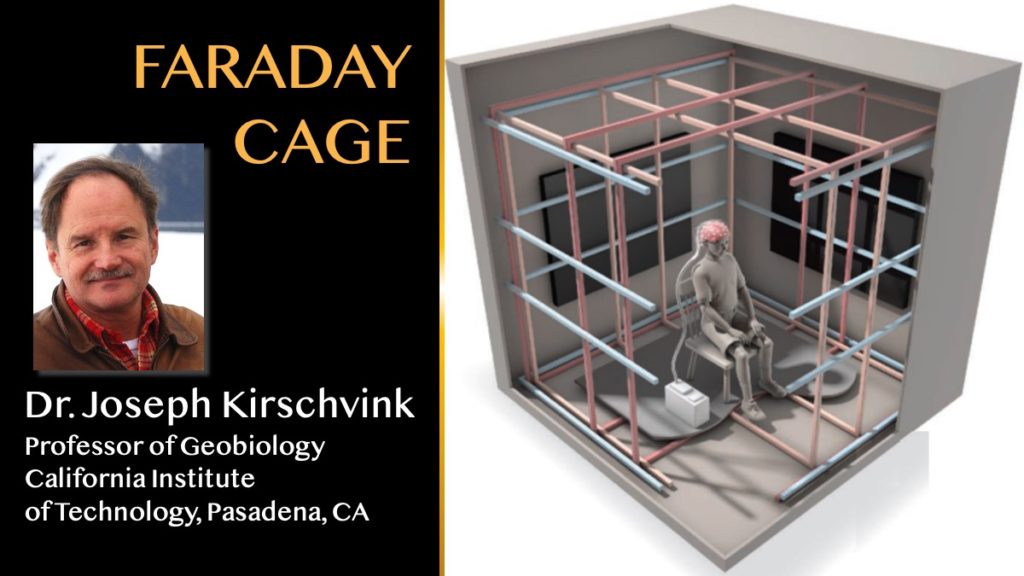
Test subjects sat in darkness and quiet for an hour wearing EEG caps that measured their brain waves’ responses to changes in the magnetic field. Then Dr. Kirschvink manipulated the magnetic field in the cube.
So what did they find?
“I was just blown away!”
When scientists manipulated the magnetic field in the cube, the amplitude of the brain’s rhythm dropped by as much as 60% before returning to normal. This was a surprising and unexpected finding. Isaac Hilburn, a Caltech researcher and study co-author said, “I was just blown away! I didn’t think we’d ever find anything this clear cut, quantifiable and reproducible … and I was somewhat skeptical at the project’s outset.” “Essentially, their brains were freaking out in response to changes in magnetic fields,” said Kirschvink.
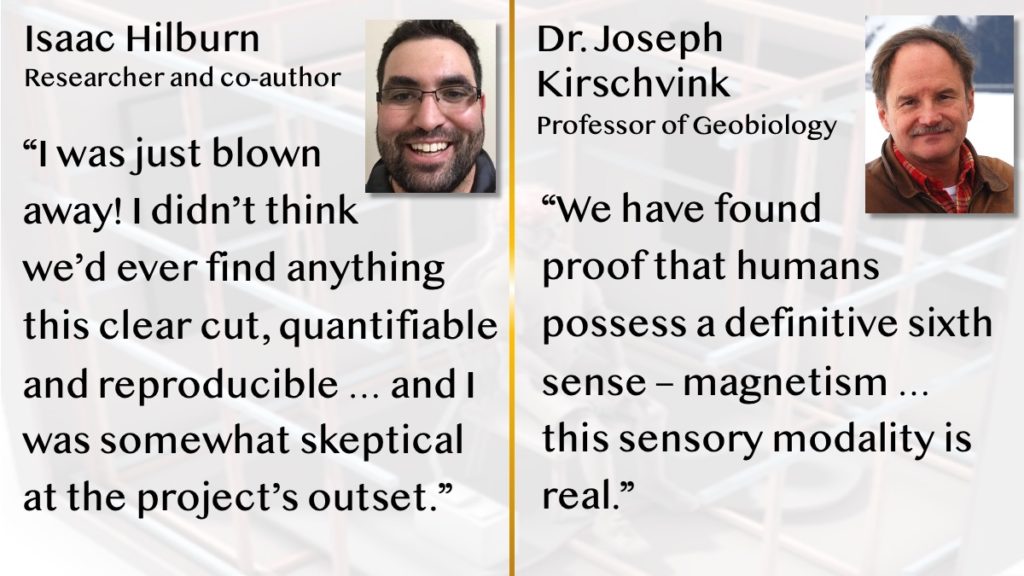
“We have found proof that humans possess a definitive sixth sense – magnetism,” said Kirschvink. “This sensory modality is real. It could explain why some people have better senses of direction than others, for example. It might even be possible one day to restore our ancestral ability to use magnetic fields to navigate. My feeling is this is just the tip of the iceberg.”
Kirschvink concluded, “Magnetic sensory systems occur in virtually all organisms, including humans. The human brain is evolved over half a billion years to pull out information from the magnetic field just like any other sensory system. What we’re saying is we haven’t lost our magnetic sensory systems.”
So, humans do indeed have magnetic sensory systems, and changes in magnetic fields can trigger fluctuations to which some people are sensitive. And it turns out that fluctuations to our magnetic fields are caused on a regular basis by the moon.
But questions remain because Kirschvink reported that when he manipulated the magnetic field in the Faraday cage, the amplitude of the brain’s rhythm dropped by as much as 60% before returning to normal in his test subjects. What is meant by brain amplitude? And what are the consequences of a 60% drop in amplitude? Subtle Energy Fields – Part 4 answers these questions.
Where scientific conclusions end, ancient wisdom starts
So each of us is a mini-magnetic field that connects with other magnetic fields, whether we feel it or not. We are never truly alone since we all vibrate in frequencies that are connected to myriad other frequencies around us. As the naturalist John Muir said, “When we try to pick out anything by itself, we find it hitched to everything else in the universe.”
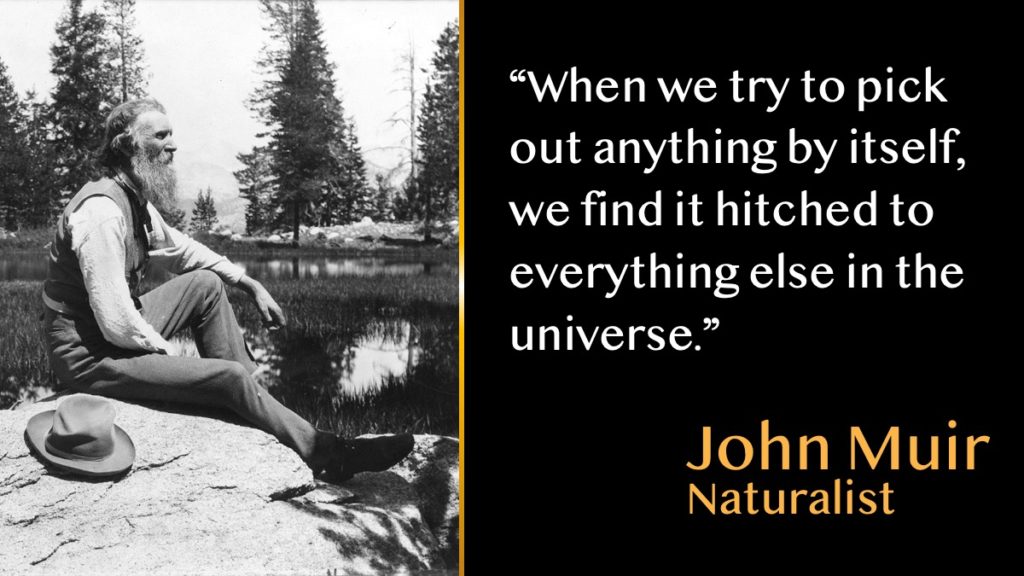
Science only believes in what is measurable by laboratory instruments, so we can expect to get more evidence about the moon’s impact on earth as technology improves. Regardless of scientific advances, where scientific conclusions end, ancient wisdom starts. The ancients knew about magnetic fields and were able to incorporate the moon’s cycle into their lives in healthy ways. Keep reading to see how you use the ancients’ understanding of subtle energy to bring back your connection with nature, the earth, the moon, and ultimately yourself. As you will see, subtle energy is the gateway in.
Resources
Learn more about the moon’s effect on the earth’s magnetic field in the article summarizing recent research, Lunar Effects on Mood and Biology Are Real and the related research abstract Lunar biological effects and the magnetosphere.
Learn more about magnetic fields in the BBC article What are magnetic fields and how do they shape the Universe?
Learn more about how ancient builders anchored their monuments into the earth’s magnetic field and how we can bring this knowledge into the future for the benefit of all by checking out the work of Dr. Ibrahim Karim, architect and founder of Biogeometry.
Read more about scientific discoveries regarding the moon and life on earth:
* The Scientist Magazine article Can Humans Sense Magnetic Fields as quoted by the BBC.
* The Smithsonian Magazine article Some People’s Brains Can Sense Earth’s Magnetic Field.
* The Guardian Newspaper article The sixth sense: can humans detect the Earth’s magnetic field?
Learn how you can heal yourself with the moon by reading the entire Powers of the Moon Series:
Part 1 – Ancient Beliefs About the Moon
Part 2 – Discoveries About the Moon
Part 3 – How Does the Moon Affect the Earth?
Part 4 – Subtle Energy Fields
Part 5 – Healing With the Moon
Learn about the importance of the moon in the Chaco Culture of what is now New Mexico in The Mystery of Chaco Canyon, available for purchase and streaming on Amazon Prime. As you watch the documentary, you might consider the sites as communal spiritual centers and the kivas as places for inward journeys of initiates.
To learn more about the moon’s influence and what you can do to live in alignment with the moon’s natural rhythm, watch the six lessons in the 28-Day Moon Meditation Essential Program. If you want a short (15-minute) daily practice designed around the phases of the moon, check out the daily practice videos for this program.
Learn more about healing and consciousness at Inner Treasure Hunt. If you liked this post, you can subscribe to the Inner Treasure Hunt newsletter to stay informed about new posts, programs, and events.
Please share this post with your friends! Just click below.

